Of the gentian belongs to the gentian family (Gentianaceae). According to Pliny the Elder, the generic name Gentiana is derived from the Illyrian king Gentius (Gr. Genthios), to whom the discovery of the gentian as a medicinal plant can be traced back.
Occurrence & cultivation of gentian

The genus of Gentians includes approx. 300 - 400 species. Most of the plants in this genus love calcareous soils and prefer to grow in the Central and Southern European mountains.
In some countries such as B. France, Germany and Spain, the herbaceous plants are cultivated for medicinal use. Gentians, the stems of which can be up to 1.50 m high, bloom during the summer months in yellow or intensely blue, very rarely in white (white flukes).
They can live up to 25 years, and after ten years they usually have flowers for the first time.
Application & use
Blue-blooded Gentians are often only used as an ornamental plant, whereas the yellow gentian (Gentiana lutea) is used medicinally. It is used to make digestive schnapps and in various forms as a medicinal product.
Not the entire plant, which is under nature protection, is used, but only the subterranean plant parts, which in their entirety can weigh up to seven kilograms. They are harvested in autumn, thoroughly dried and contain the pharmaceutically relevant active ingredients: bitter substances and yellow coloring agents.
The bitter substances with gentiopicrin as the main active ingredient are particularly interesting. The peculiarly bitter taste of the yellow gentian is due to the ingredient amarogentin. Amarogentin is one of the bitterest, naturally occurring substances and is still clearly noticeable in taste even after a dilution of 1: 58 million. Bitter substances generally stimulate digestion and increase blood flow to the mucous membranes.
In many regions, gentian is drunk as a tea or consumed as a spirit. This brandy, known as "Enzele", "Jenzer" or euphemistically as "Eau de vie" (water of life), is used to treat all kinds of digestive problems. An excellent liqueur can also be made from gentian - Hildegard von Bingen praised this drink and recommended using it several times a day.
For this purpose, the liqueur, which is still available today, is heated in a steel vessel and drunk during or after the meal. Alternatively, she advised sprinkling a teaspoon of gentian root powder (available on the Internet) over the soup and then spooning it off. As a homeopathic medicine, gentian is available in the form of globules or as a dilution.
Significance for health, treatment & prevention
The healing effect of the Gentians has been known since ancient times. The already mentioned, western Swiss name "Eau de vie" suggests the diverse and lasting effects of the gentian.
Not only Hildegard von Bingen, but also the poet and naturalist Johann Wolfgang von Goethe was full of praise for this unique plant. Gentian has a healing and preventive effect in the human digestive system. The bitter taste leads to an improved secretion of secretions in the stomach. Gentian preparations are therefore often used for. B. used with insufficient gastric juice production or with loss of appetite. Gentian is also used as a remedy for flatulence or bloating.
Gentian extracts have a low antimicrobial effect, which explains their use in folk medicine against certain forms of intestinal parasites. In the Middle Ages, the use of yellow gentian was recommended for liver problems and also as a remedy for gout. The antipyretic (fever-lowering) effect that has long been attributed to this medicinal plant has now been scientifically refuted.
Hildegard von Bingen attributed the medicinal plant to strengthening the heart. In homeopathy, Gentiana lutea is also used for certain balance disorders, for acute abdomen, acute gastritis or gastroenteritis and also for ulcers of the gastrointestinal tract.
Anthroposophic medicine, however, sees the use of gentian contraindicated in ulcers. In addition to the complaints already listed, the medicinal plant is also prescribed here after prolonged infectious diseases or in the event of iron and mineral deficiency. Gentian is also used for problems with "mental" digestion, i.e. if something is "heavy in the stomach" of someone, the plant, which tones up not only physically but also psychologically, can unfold its effect.

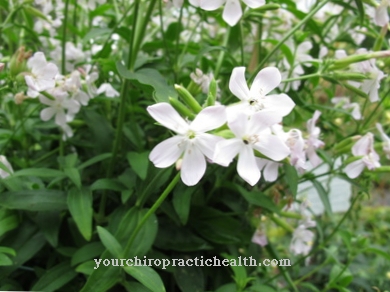
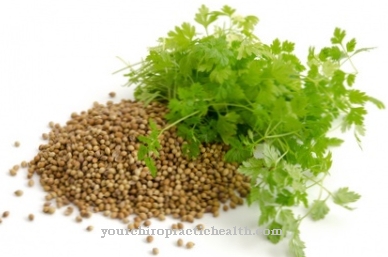
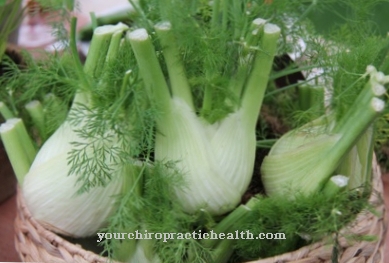
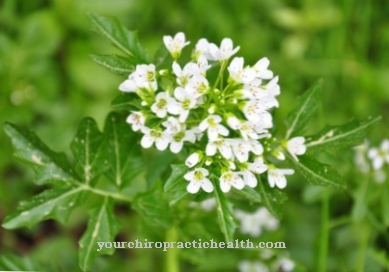
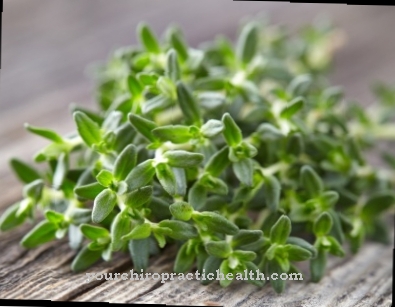
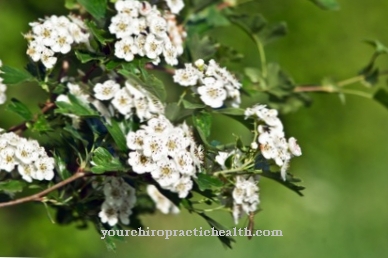

















.jpg)



